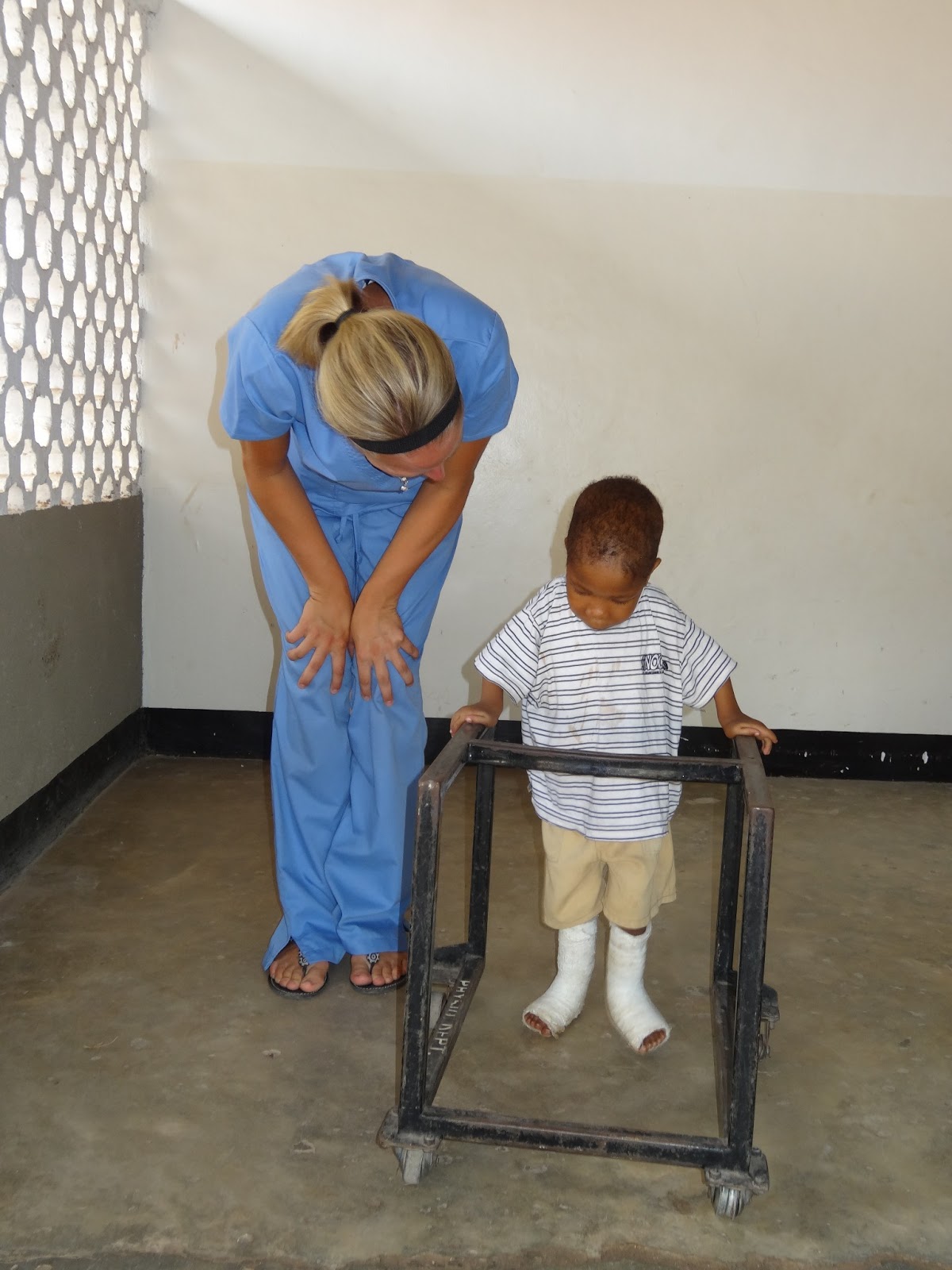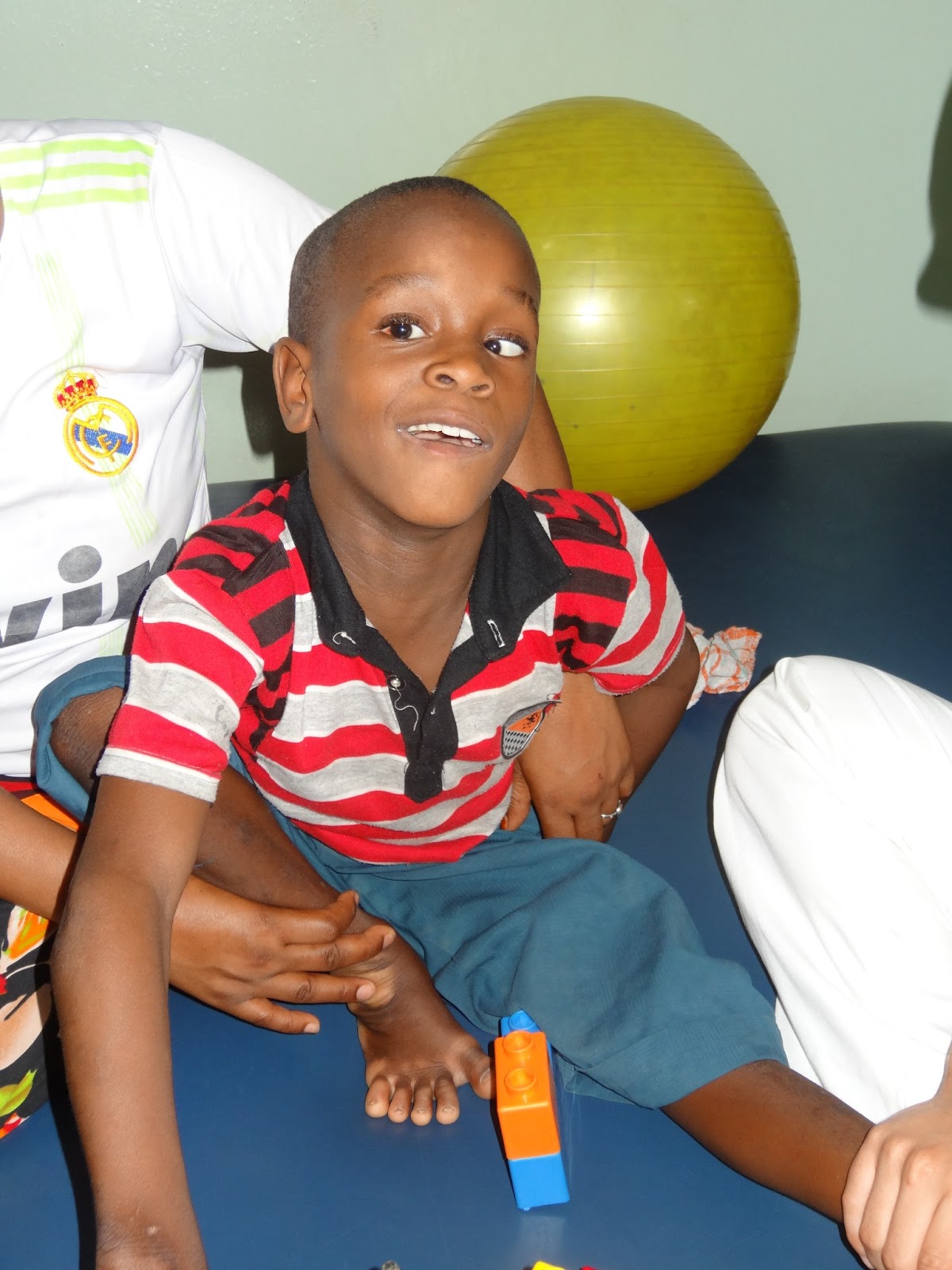I've always loved working with children. Being able to make a kid smile is priceless. However, being a healthcare worker isn't always a good thing when working with a child. For instance, most smaller children see a doctor/nurse/or anyone in uniform and immediately start crying. Can I honestly blame them? Doctors are scary! And who likes needles anyways? I still get the chills when I walk into an office of a doctor or even a dentist and smell the lovely aroma of antiseptic mixed with latex. Most often I have to try my hardest to turn those frowns upside down. A majority of the time once kids realize you are mostly just "playing" they relax a bit and are loads of fun. There are still quite a few children who are in a lot of pain or are too young to understand that we mean no harm. These cases are the ones that pull on my heart a bit and make my job more difficult. I've also found out that many children simply are afraid of
mzungu. I guess it also doesn't help when we are wearing all white scrubs. Our outpatient clinic sees about 30 patients a day. Krista and I have been treating anywhere from 6, 7 or more each. We have encountered a large variety of diagnoses, and most of our children are very young, from birth to 2 years old (my youngest was 2 weeks old!) Although, we occasionally treat older children, even younger adults up to age 20. We've even established a few of our own "regular" kids and are more regularly establishing relationships with our patients. On Wednesdays CCBRT has a Post-Injection Paralysis (PIP) clinic for kids experiencing weakness/pain/paralysis following gluteal injections. Thursday's there is a clinic designed to treat Erb's Palsy (brachial plexus injuries). On these days there are twice as many patients. I am becoming more confident and comfortable with each and every child that we treat, even though the language barrier is most often my biggest hurdle. Many of the evaluations that we complete end up being referred to a support unit. Mostly because Dar is such a large city that people cannot afford to travel to CCBRT multiple times per week, but also because there just aren't enough therapists to treat all the children that need our services. There are many children with disabilities, more than I had anticipated. This could be caused by poor pre-natal care, lower socio-economic classes, or a variety of different causes. That aside, the number of physiotherapists in Tanzania is very low. I get asked many times where I will work when I'm done, or if I'll come back to work in Tanzania. As much as I have enjoyed living here and the experiences I've had, I can't imagine being here long term (mostly because I'd miss my family too much, among other reasons).
 |
Outside the Physiotherapy area, where most of the mothers and their children can wait several hours to be treated.
|
|
 |
| Our pediatric physiotherapy room. 4 PTs and 4 PT students see patients in here. |
 |
| The miniature beanie babies that everyone loves! |
I've had the opportunity to work with some fabulous kids so far. However, I have also had some very sad experiences. Who would I be if I only shared the good ones right? Some of the diagnoses that are in Africa are things that wouldn't be seen in the United States. Club foot is more common here, which is why they have such a good club foot clinic. The casting process is intense, and although there isn't any "pain" associated, it's an uncomfortable process that most certainly elicits crying. Spending a few hours casting screaming babies is definitely not easy, and wears me down. A second diagnosis that I've seen is Rickets. I'm sure everyone has seen a picture of a child with rickets, which shows extreme bowing of the legs. This is caused by vitamin D deficiency which causes bones to soften and ultimately collapse when a child starts to bear weight. Physiotherapy plays a role to maintain range of motion in different planes of movement, and this has also caused some ear piercing screams. Not that I'm saying physiotherapists are terrorists here, but they definitely push the bar when it comes to treatments, and parents seem to only push harder. This seems bizarre to me, mostly because I'm used to the U.S. culture where we "baby" our children the second they start to cry (just generalizing here, I know that's not every mother). Mothers in Africa are a bit more rough with their children (don't worry, not in a harmful way). Also, when it comes to a baby crying, it doesn't seem to bother anyone.The baby will continue to cry for an extended period of time, after which the mother will calm the child by breastfeeding, even mid-treatment if need be. It's a very natural thing and women do it just about anywhere and anytime. I've seen one pacifier here so far, and one occupational therapist looked at it so strangely not knowing what it was. This being said, there are many times when the clinic is full of crying children.
Even though there are times when you spend multiple hours a day listening to screaming babies, the children that I have established relationships with and see on a daily basis really make my job worth while.
 |
| This little man makes my day. He has Arthrogryposis and we are working on walking. |
 |
| He is the sweetest little boy and has an infectious laugh. Truly a joy to work with! |
 |
| This little guy has Spastic CP. We have fun working with him. |
This being said, there are still two weeks left and I'm hoping to make a difference in the lives of some more children. I'm sure there will be another update on my PT adventures in pediatrics!
- K










I could tell by the smiling faces that these two little boys loved having you work with them!
ReplyDeleteEven the same case with me. I also loved to work with children. You are doing a great job in Tanzania.
ReplyDeleteKelly, I m really proud of you.